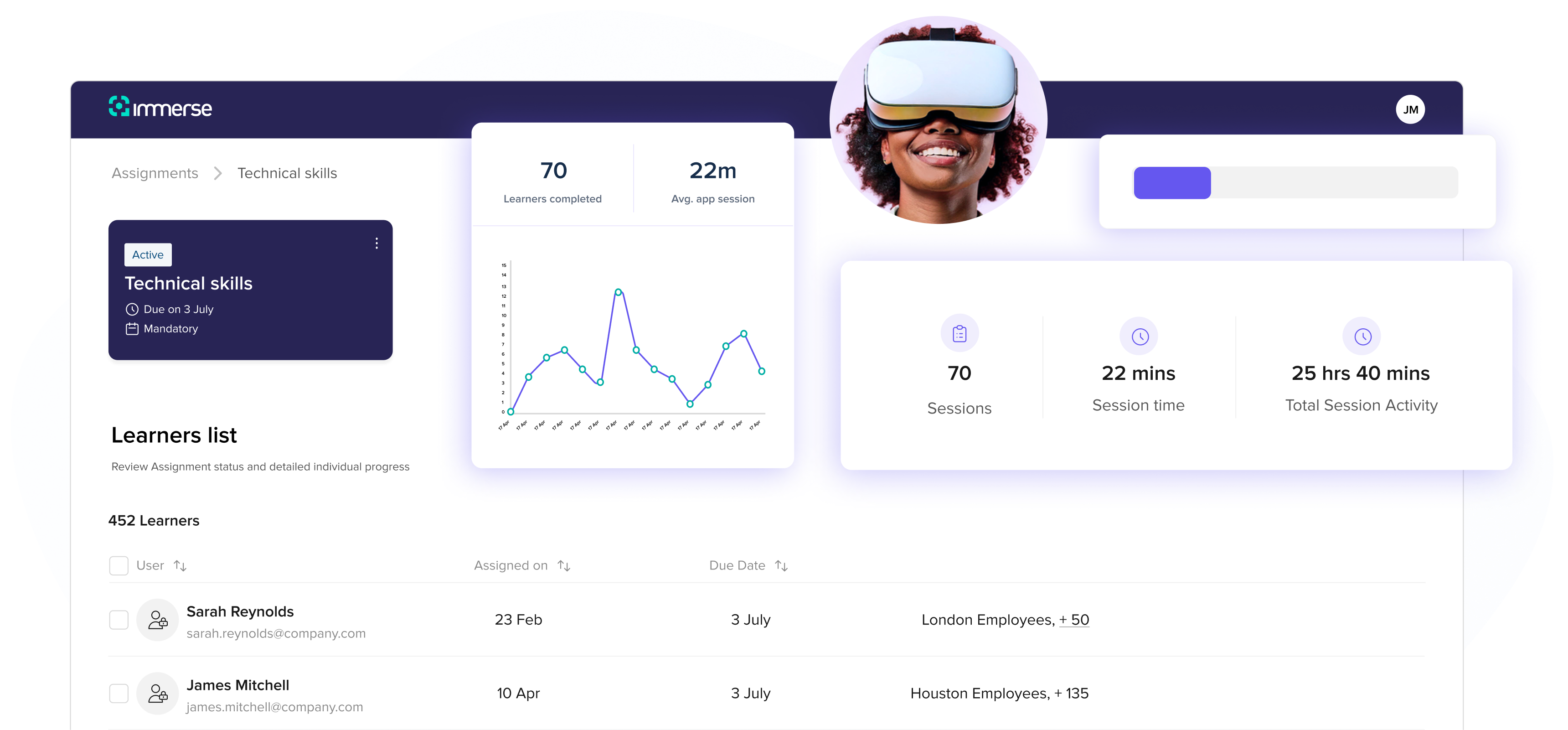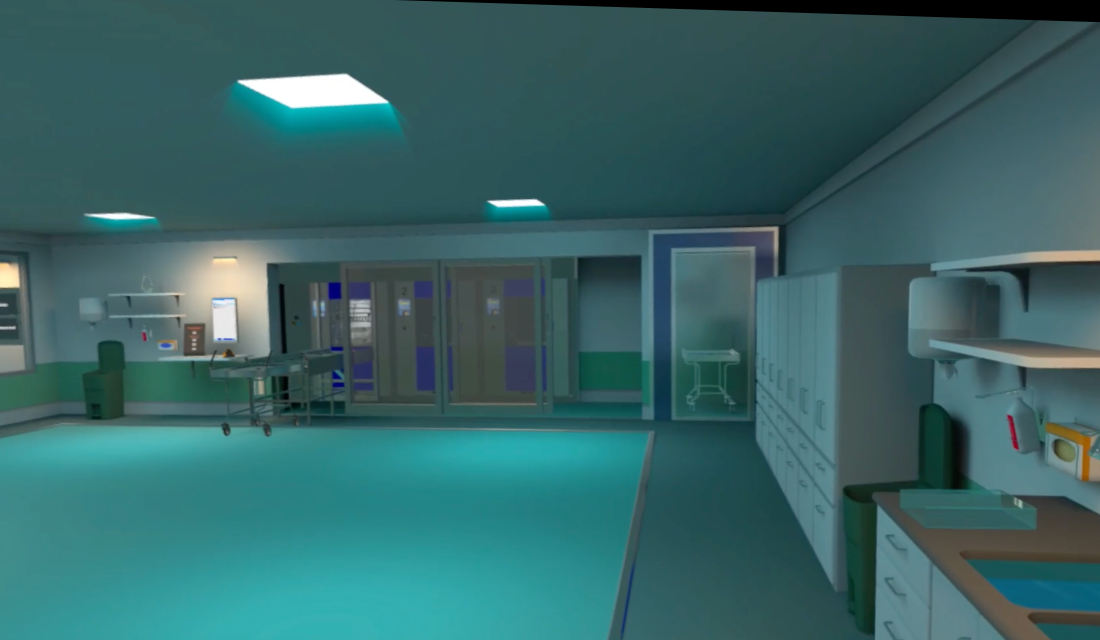
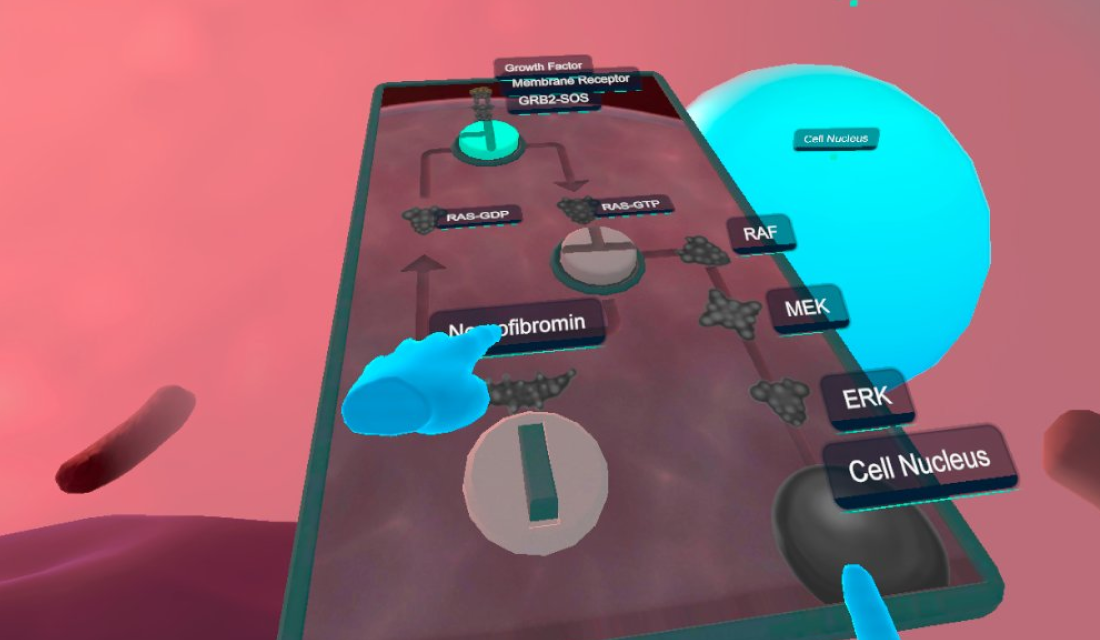
Patient centricity
Improve patient satisfaction with VR training that educates and reassures, enhancing understanding and adherence to treatment plans.
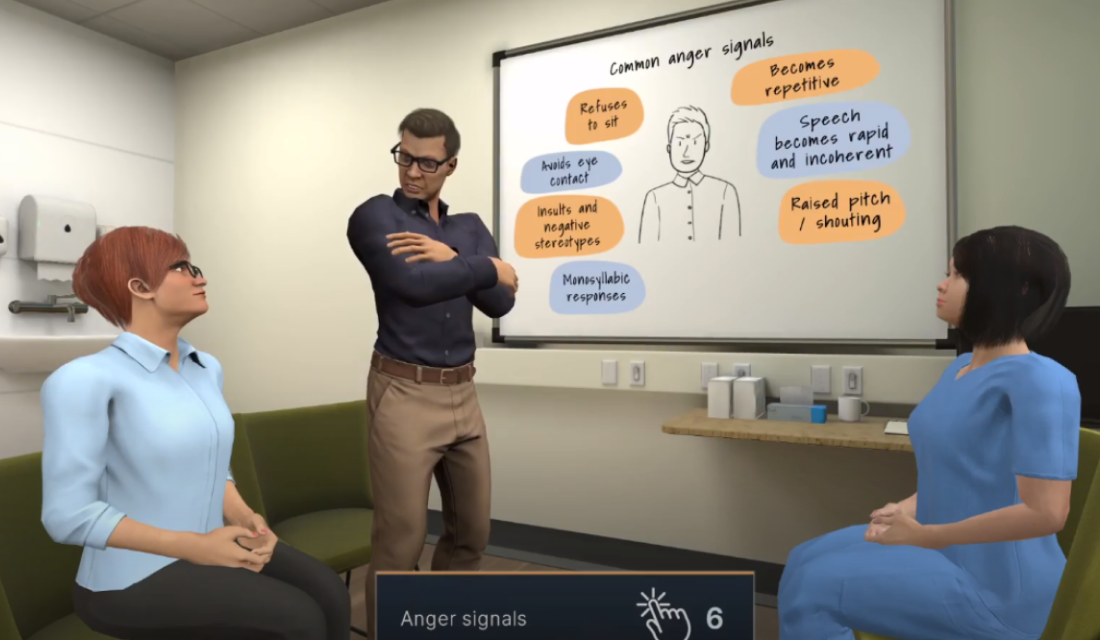
Employee empathy and education
Enhance employee empathy and understanding through realistic scenarios, fostering better patient interactions while increasing engagement and retention.
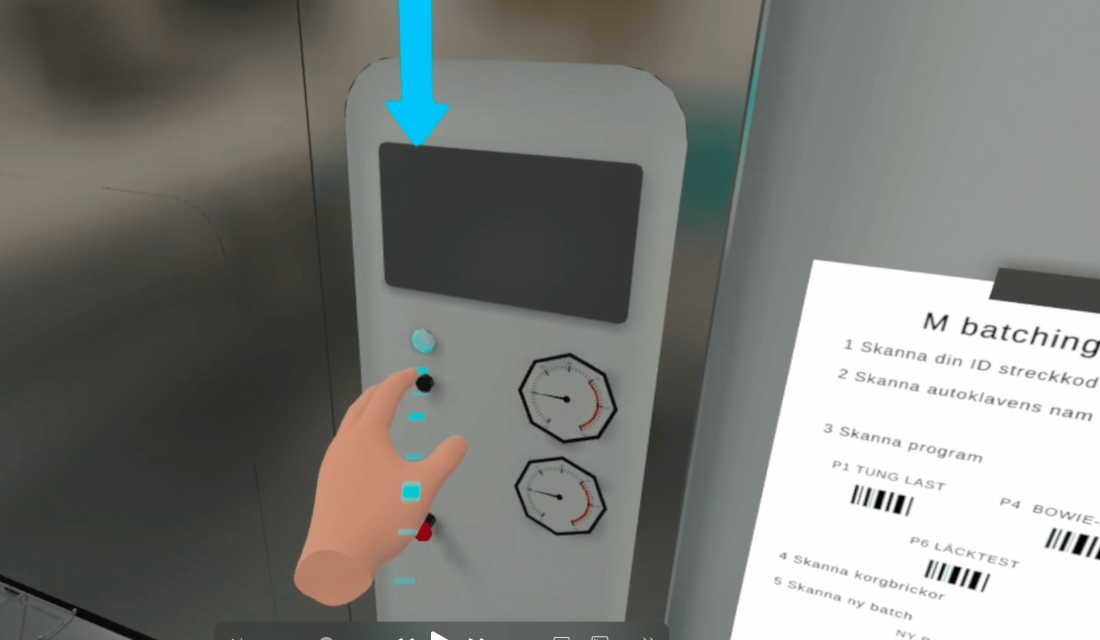
Operations and R&D
Safely replicate complex procedures with VR training, reducing costs and time while improving compliance.
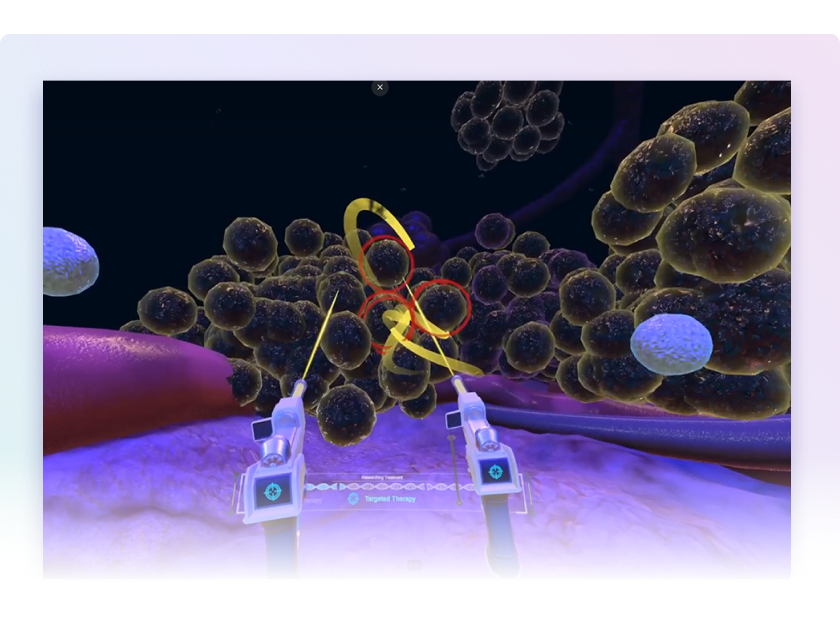
Patient centricity
The pharmaceutical industry already uses VR widely to create patient-centric training programs that focus on patient education, interaction, and safety. VR-based patient education programs guide patients through their treatment journeys, helping them understand their conditions and medications.
Patient interaction simulations for healthcare professionals (HCPs) allow medical staff to practice communication and treatment scenarios with virtual patients, improving their skills and empathy. VR is also used for telemedicine training, providing healthcare professionals with the skills and confidence needed for virtual consultations.
For clinical trials, VR helps with clinical trial staff protocols and risk management, ensuring adherence to safety regulations. Additionally, VR-based clinical trial participant education enhances the experience of trial participants, helping them understand the process and their roles.
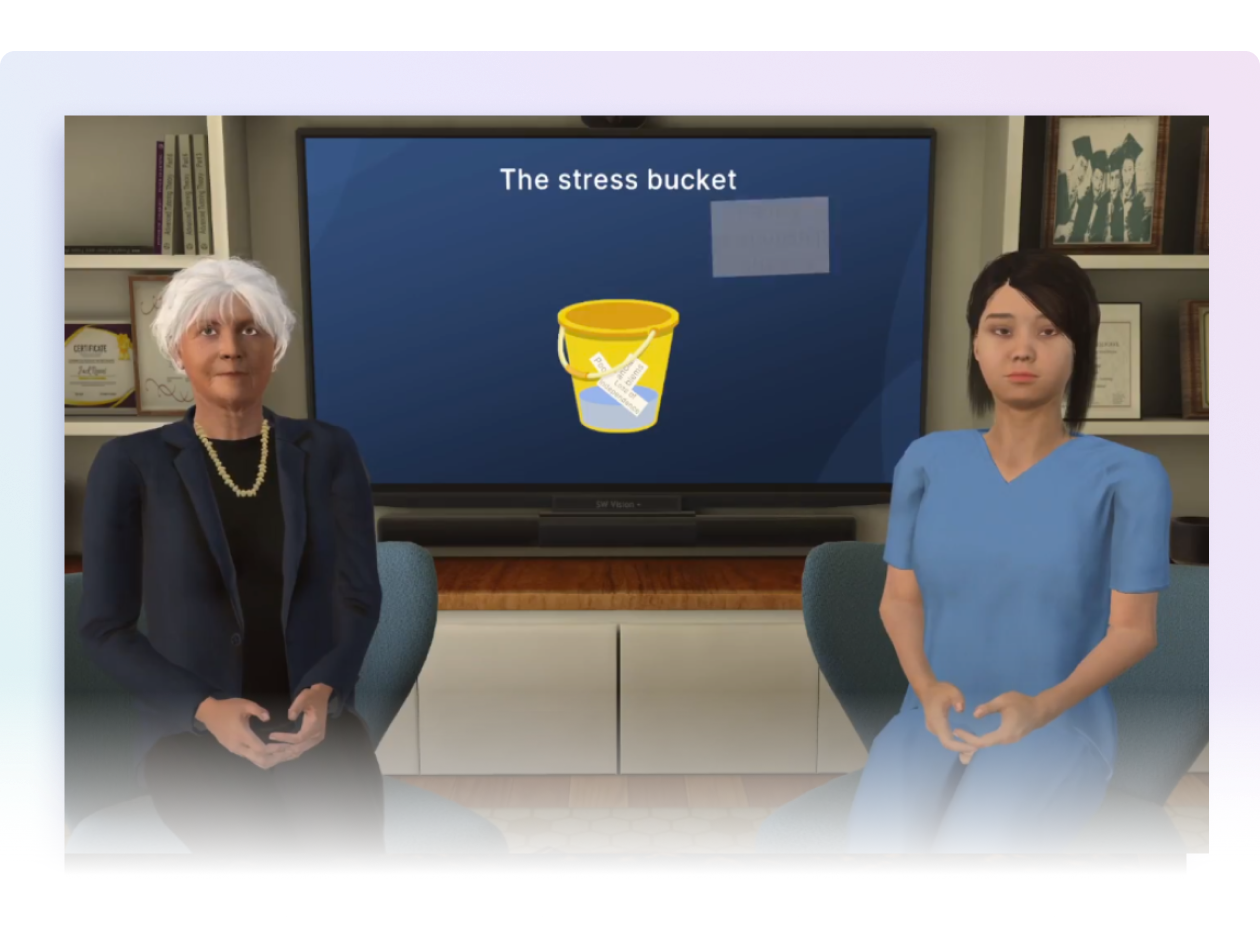
Employee empathy and education
VR training in the pharmaceutical industry helps employees understand products and therapy areas. It can contribute to more informed clinical trial design, help to understand and optimise patient pathways, contributing to an overall improvement in patient care. Employee education programs use VR to immerse workers in virtual scenarios, providing comprehensive knowledge of pharmaceutical products, therapeutic areas, and their applications.
This immersive approach allows employees to learn in a risk-free environment, enhancing their understanding and empathy toward patients and healthcare professionals.
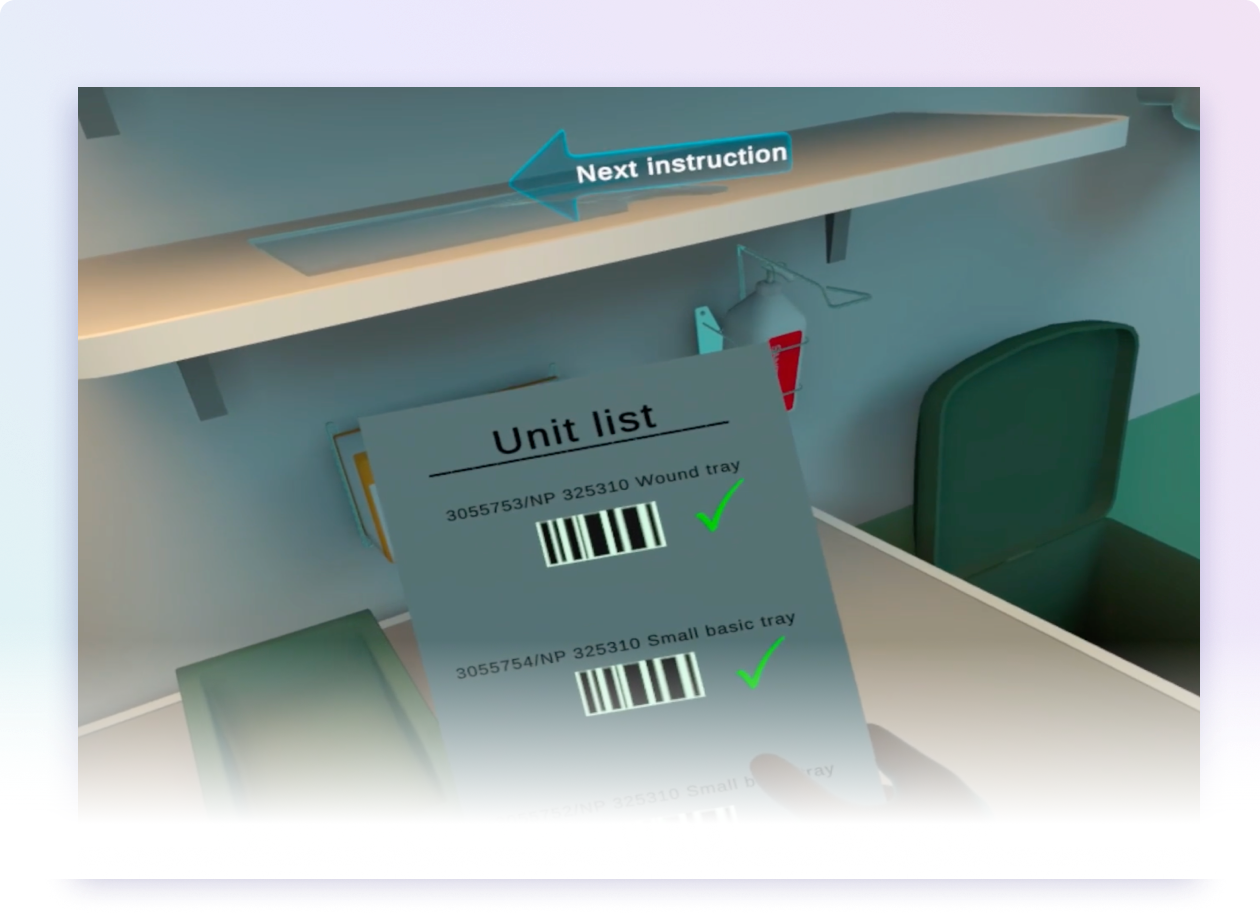
Operations and R&D
In the pharmaceutical industry, VR can directly contribute to improving operational performance objectives; cost, dependability, flexibility, quality, and speed*. VR training provides hands-on experience for complex procedures, ensuring that employees are well-prepared for intricate tasks.
Laboratory safety is enhanced by VR simulations that teach best practices without real-world risks, reducing accidents and ensuring compliance. VR also plays a crucial role in clean room compliance, helping staff understand and adhere to strict hygiene and safety protocols. For emergency situations, VR-based emergency response preparedness drills simulate various scenarios, enabling quick and effective responses in times of crisis.
Additionally, VR is used for supply chain management training, allowing employees to explore and optimize the flow of materials and products within the pharmaceutical industry.
*Slack, Brandon-Jones, and Johnston, Operations Management; 2013.
Deliver VR training to learners and track results, easily
Provide immersive experiences in minutes and measure success with simple technology that just works—so you can focus on what matters most.
Explore product